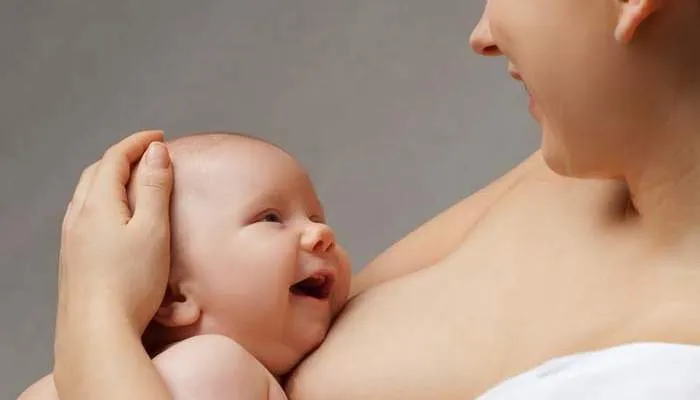You have a child. You want to give her as much valuable and necessary as possible. For example, breast milk. It would seem that what could be more natural and simpler. However, a young mother, especially if she is a first-time mother, is overwhelmed with so much information that it is difficult to choose the only correct model of behavior. Read this article and feed calmly.
We debunk the main myths about breastfeeding
1. In the first days, there is not enough milk.
Oh, more than one pregnant woman was advised to take a delivery bottle and formula with her. As if just in case, and at the same time motivating by the fact that in the first few days the mother in labor either has no milk, or it is very little. Therefore, the baby must be fed, otherwise it will lose weight.
This is a pure water myth. The baby does not need to be fed. Milk, and in fact it is not even milk, but colostrum is quite enough for his needs. In addition, it contains all the necessary components that a child needs. And weight loss in the first days is normal. Babies usually lose 8-10% of their weight. And the mixture with the bottle will not help here.
2. Breasts should be washed before each feeding
But no. Do not need. It is enough that you take a shower twice a day or simply rinse the nipples in water the same two times.
And for good reason. Around the areola of the breast there is a gland that secretes a special secret. It protects the areola and is also a kind of conductor between mother and child. It is IMPORTANT that this secret does not need to be washed off, and frequent washing of the breast will lead to just that.
3. A woman must follow a strict diet
A very antediluvian myth. A woman, of course, can do this if she has such a desire, but it will be better if she chooses the option of full nutrition.
The baby does not need the mother’s sacrifices, he needs to grow and develop, and the mother needs the diet of a healthy person. That is, you can eat absolutely everything. And fresh vegetables and fruits are very desirable.
Yes, it is worth watching the baby’s reaction, because everything is individual. However, usually the diet is superfluous, nothing similar is practiced abroad. There, a woman can eat freely already in the first days after giving birth.
4. Chest = regime
In no case. Do not torture yourself or the baby. The advice to feed a child for a code of 3 hours was relevant many years ago. And, fortunately, no pediatrician will say anything like that now. You need to feed the baby on demand. Especially in the first weeks after birth.
And so you will not only satisfy the desire to eat the little ones, but also properly establish lactation.
Also, frequent attachment to the breast facilitates the formation of the gastrointestinal tract in the baby.
5. Breasts should be hidden from the cold
Very often, young mothers are scared and forced to wrap their breasts, hiding them in cool weather. Yes, of course we all walk around dressed. But it is not worth giving any special importance to the breast itself.
We can catch a cold in the whole body, not a part of it. But in this case we are talking about lactostasis. The fact that the woman “caught a chest cold” was the most common justification for them. However, the reason actually lies in something else – uncomfortable underwear that squeezes, infections, cracked nipples, squeezing the chest during sleep, etc.
6. You cannot feed a child with small breasts
Nonsense. Breast size does not matter at all. Lactation does not depend on it. In general, only a few women fail to breastfeed their own child, and even then for completely different reasons.
7. A restless child, because he does not get enough
This is hardly an indicator before feeding. Well, except as a last resort, and even then in a complex.
If the baby is fussy, it does not mean that he is hungry. There can actually be many reasons. However, it is actually very easy to determine whether a child is full – count the number of urinations per day. If in doubt, remove the diaper and determine in this way. A child up to six months urinates 10-12 times a day, and after six months – 8-10. If the number of urinations is much less, then it can be said that the baby is not fed with breast milk.
Remember that breastfeeding is a golden period that you should enjoy. And no one but you knows what is best for your baby.

